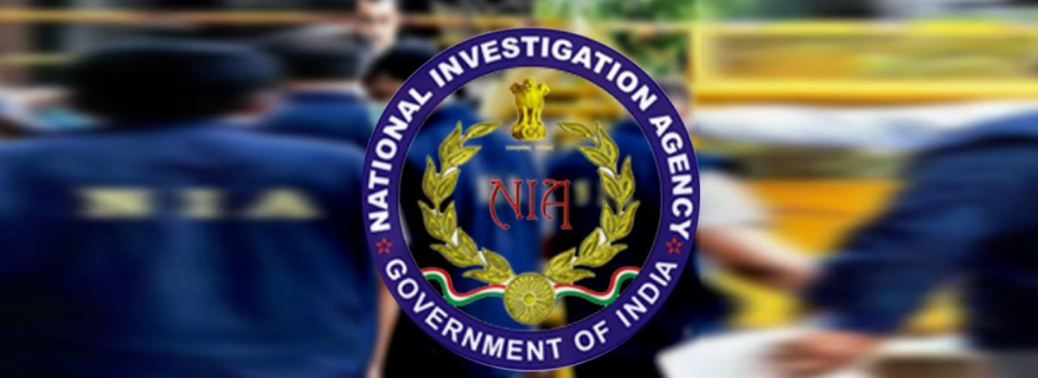NATIONAL INVESTIGATION AGENCY (NIA)
02, Mar 2020

Prelims level : Constitutional Bodies, Regulatory Bodies
Mains level : GS-II Government policies and interventions for development in various sectors and Issues Arising out of their design and Implementation.
Context:
- Recently, a petition filed to order the National Investigation Agency (NIA)to find out the “anti-national forces” behind the agitations and to probe the role of People’s Front of India (PFI).
About NIA:
- It is constituted under the National Investigation Agency (NIA) Act, 2008.
- It is to investigate and prosecute offences:
- affecting the sovereignty, security and integrity of India, security of State, friendly relations with foreign States.
- against atomic and nuclear facilities.
- smuggling in High-Quality Counterfeit Indian Currency.
- It implements international treaties, agreements, conventions and resolutions of the United Nations, its agencies and other international organisations.
- Its objective is to combat terror in India. It acts as the Central Counter-Terrorism Law Enforcement Agency.
- Its headquarters is at New Delhi and branches located at Hyderabad, Guwahati, Kochi, Lucknow, Mumbai, Kolkata, Raipur and Jammu.
About the Mandate of NIA:
- The Central Government assign the cases in accordance with section VIof the NIA Act, 2008.
- The investigation of the cases is done by the Agency independently and placed before the NIA Special Court.
- The sanction is granted under the Unlawful Activities (Prevention) Act, 1967 UAPA based on the report of the ‘Authority’ constituted under section 45 (2) of the UAPA.
- It is empowered to deal with terror-related crimes across states without special permission from the states.
- To curb various aspects of terrorist financing, a Terror Funding and Fake Currency Cell (TFFC) has been created in the NIA.
- TFFC maintains a database of terror financing and cases of Fake Indian Currency Notes (FICN). It also conducts a part investigation into terror financing aspects of regular cases investigated by the NIA. Its Cell conducts verifications of bank accounts of the suspects that are linked with Naxalite groups.
- NIA also has an exclusive Left Wing Extremism (LWE)cell to effectively deal with cases related to terror financing aspects of Naxalite groups.
- The Ministry of Home Affairs (MHA) reviews the manpower, financial and infrastructure requirements of NIA from time to time.
About the NIA (Amendment) Bill, 2019:
- It was passed by Parliament amending the original Act of 2008.
- It seeks to allow the NIA to investigate the following additional offences:
- Human trafficking
- Manufacture or sale of prohibited arms
- Cyber-terrorism, and
- Offences under the Explosive Substances Act, 1908
About Jurisdiction-NIA:
- The officers have the same powers as other police officers in relation to the investigation of such offences, across India.
- They will have the power to investigate scheduled offences committed outside India, subject to international treaties and domestic laws of other countries.
- The central government may direct the NIA to investigate such cases as if the offence has been committed in India.
- The Special Court in New Delhi will have jurisdiction over these cases.
- Scheduled Offences are the list of offences specific to the acts such as the Atomic Energy Act, 1962, and h, which are to be investigated and prosecuted by NIA.
About Jurisdiction – Special Courts:
- The Government for the trial of Scheduled Offences, constitute one or more Special Courts under Section 11 and 22 of the NIA Act 2008.
- Composition: Special Court shall be presided over by a judge to be appointed by the Central Government on the recommendation of the Chief Justice of the High Court. The Central Government may, if required, appoint an additional judge or additional judges to the Special Court, on the recommendation of the Chief Justice of the High Court.
- It has all powers of the court of sessions under the Code of Criminal Procedure, 1973.
- Where any question arises as to the jurisdiction of any Special Court, it shall be referred to the Central Government whose decision in the matter shall be final.
- The Supreme Court can transfer a case pending before a Special Court to any other Special Court within that State or any other State in some exceptional cases where it is not feasible to conduct a peaceful, fair, impartial and speedy trial.
- Likewise, the High Court has the power to transfer a case pending before a Special Court in a State to any other Special Court within that State.






